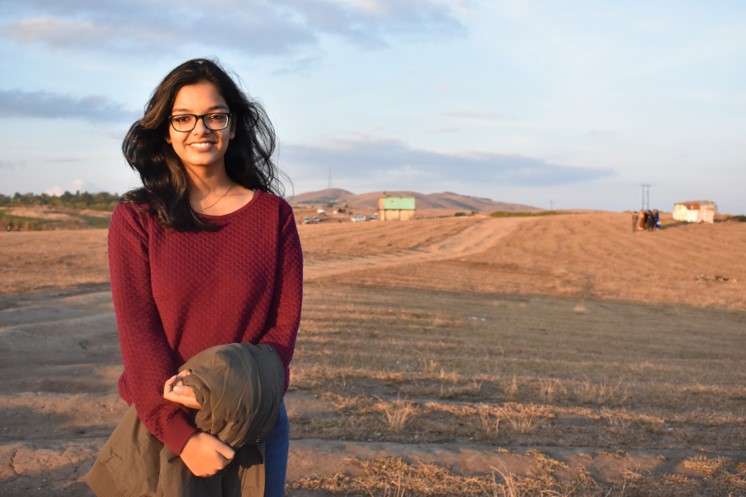
The date was the third of November. The place, Panchkula. A newlywed hung his head low, as his wife told a police officer that she had been tortured by his family over dowry demands. This is one of the most common complaints brought to this all-women police station. Several such all-women police stations were launched across the district of Panchkula the previous year in order to improve how the deeply patriarchal state tackles gender violence. The woman spoke softly but firmly. Not many women in India get this far.
It is undisputed that there is widespread under-reporting of crimes by female victims, especially when it comes to sexual violence. Fear of reprisal, social stigma and mistreatment by an overwhelmingly male police force are the primary reasons holding women back. Victims, especially those of rape, have endured an extremely archaic, insensitive, poorly funded and under-resourced criminal justice system which has failed to care for them medically, as well as to deliver justice. The 24,206 rapes reported in 2011 by the National Crime Records Bureau (NCRB) is the equivalent of one rape every 20 minutes, but even that is thought to be a minority of the number of such attacks across the country. This a result of the deep-rooted conservatism of Indian society. Most of these victims are scared to come forward for fear of being “shamed” by their family and community. Others who are brave enough to approach the police face challenges like unsympathetic forensic examinations, a lack of counselling, crude police investigations and weak prosecutions in the courts.
“One part of the problem is certainly attitudes. A lot of government officials, especially police, allow negative and damaging stereotypes of rape survivors being promiscuous to interfere with their duties,” says Aruna Kashyap, women’s rights researcher for Human Rights Watch. As a consequence of this attitude, a rape survivor approaching the police to make a complaint often faces hostility or skepticism.
In 2016, a 17-year-old village girl was drugged and gang-raped by a group of men in a field in the northern Punjab region. She killed herself because the police allegedly failed to take her complaint seriously. Disillusionment with the authorities, and the shame Indian society often attaches to women who have been raped, has led many rape victims to commit suicide, drinking pesticide, or dousing themselves in kerosene.
We often do not realise how the most common and seemingly innocent comments and actions send a strong message that men and women are not equal. This mindset is what spurs so many instances of crimes like rapes and domestic abuse against women. It is the need of the hour to raise our voice collectively as a progressive society and work towards building a safer society for women. Gender discrimination in India has developed several social and economic restraints. Men are always placed in a more advantageous position than women, contrary to the constitutional provision of equality provided to all the citizens of India.
Gender sensitisation involves changing the behaviour and instilling empathy into the views that one holds about the two sexes. The level of violence that women encounter is unfathomable. Rape and sexual offences need special attention from police, as they are the last resort a victim has. Police personnel need to be empathetic towards her.
In gender sensitisation training programmes, police personnel are imparted training on the criminal justice system, laws related to women and the method of dealing with a victim when she comes to report a case of sexual assault and so on. A simple, yet profound initiative of not interrogating a child in uniform is one of the many adopted by the police officers of the Karnataka State Police. The Karnataka State Police is arguably the first in the country to institutionalize training on gender sensitization, HIV/AIDS and trafficking at the police station level. They have also adopted the practice of interacting with women and children in a separate room in order to make them feel more comfortable. Inclusion of such practices in police ethics will have a great impact on the way justice is administered and will eventually lead to alleviation of women.
Particularly in a country like India, with a vast diversity existing in terms of customs, traditions, rituals, social values, family beliefs and individual perception, the need for a more systematic, well planned and more professional approach is felt to inculcate this sensitivity and primarily highlight the contribution of both the genders in creation and development of a well-balanced society. Gender sensitisation programmes aim to do just this. These programmes help instill a feeling of empathy towards victims of the female gender and reduce the inequality and hostile treatment meted out to them. They help in achieving the aim of a more considerate police force, which tries to understand the pain of the victims and act accordingly, without allowing the stereotypes associated with rape survivors interfere with their duties. The aim is to create stronger women, women who are not scared to stand up in the face of wrong and a society which only pushes them higher, out of distress, into the heaven of freedom.
This article has been authored by Aditi Mozika. Aditi is a student of law at Gujarat National Law University and a member of the GNLU Centre for Law and Society.